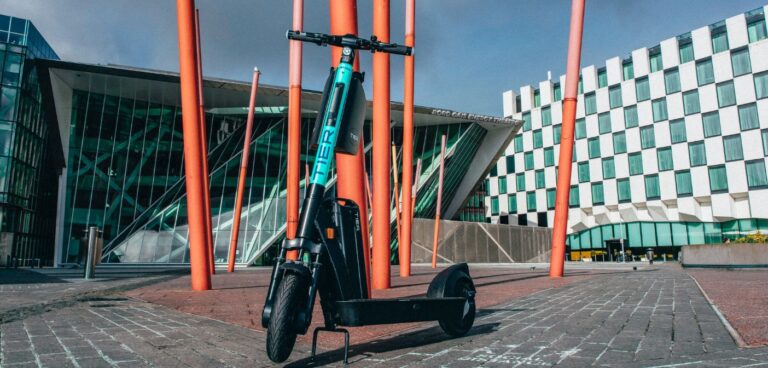An AI-powered e-scooter research pilot project is to launch at Dublin City University (DCU), in parallel with moves to legalise the transport mode across Ireland.
The shared e-scooter pilot scheme will operate on DCU campuses, as well as between campuses once legislation allows.
It will involve e-scooter operator Tier Mobility, Irish micromobility tech platform Luna, the Insight SFI Research Centre For Data Analytics, and Smart DCU, a district of Smart Dublin.
Reportedly a world-first academic-industry research project focused on computer vision in scooters, the pilot will also be Ireland’s first major structured e-scooter trial.
According to the collaboration, it aims to simultaneously improve e-scooter safety and to explore smart city possibilities associated with computer vision-equipped micromobility vehicles.
The project will start immediately on individual DCU campuses, while computer vision-equipped Tier e-scooters will also be able to operate between the various campuses, and potentially other private sites across Dublin, once Irish government legislation regulating e-scooter usage is signed into law.
Dr Declan Raftery, COO, Dublin City University, said: “We are genuinely curious to understand how e-scooters can help drive modal shift across our community of 18,000 students and almost 2,000 staff, and we want to work with Dublin and Ireland stakeholders to disseminate all useful learnings from the pilot, as we prepare for a return to campus and a wider return to work in a post-Covid world.”
As part of the project, Tier and Luna will provide a fleet of 30 computer vision-enabled scooters, allowing DCU-based Insight researchers to explore a new source of smart city data.
Equipped with the Luna technology, the Tier e-scooters will be capable of running pedestrian detection and lane segmentation algorithms, enabling the vehicles to understand how many people are in their path, as well as whether they are on the road, a cycle lane, or footpath.
The vision data generated by the fleet will be analysed by DCU-based Insight researchers, with a view to identifying smart city use cases and applications of value to local authorities.
Some use cases could be prototyped during the pilot, include traffic congestion alerts, road condition monitoring, street infrastructure mapping, kerbside management applications, as well as heat mapping of footpath riding incidents as an indicator of problematic junctions or inadequate cycling infrastructure.
Separately, Tier and DCU will monitor the modal shift pattern from cars to e-scooters across DCU users, with a focus on reducing the university’s transport-related emissions.
Tier will also explore the impact of its Energy Network innovation in terms of driving footfall to local retail outlets as part of cities’ post-Covid economic recovery.
Tier’s model allows users to swap depleted e-scooter batteries in return for free travel at charging stations hosted in local retail outlets.
According to Tier, pilot data from its Energy Network in Finland has revealed the average convenience store sees an average of €18,000 (£15,500) additional income as a result of Tier users entering to switch batteries.
As part of the pilot project, the collaborative research team will also look at insights around user behaviours and attitudes, which can feed into commercial shared e-scooter schemes that may be launched in Ireland in future.
Professor Noel O’Connor, CEO, Insight SFI Research Centre for Data Analytics, said: “The Smart DCU platform in partnership with Smart Dublin, has created the perfect test bed where industry and academia can combine to come up with the solutions that will help enhance the future of safe micromobility.”





